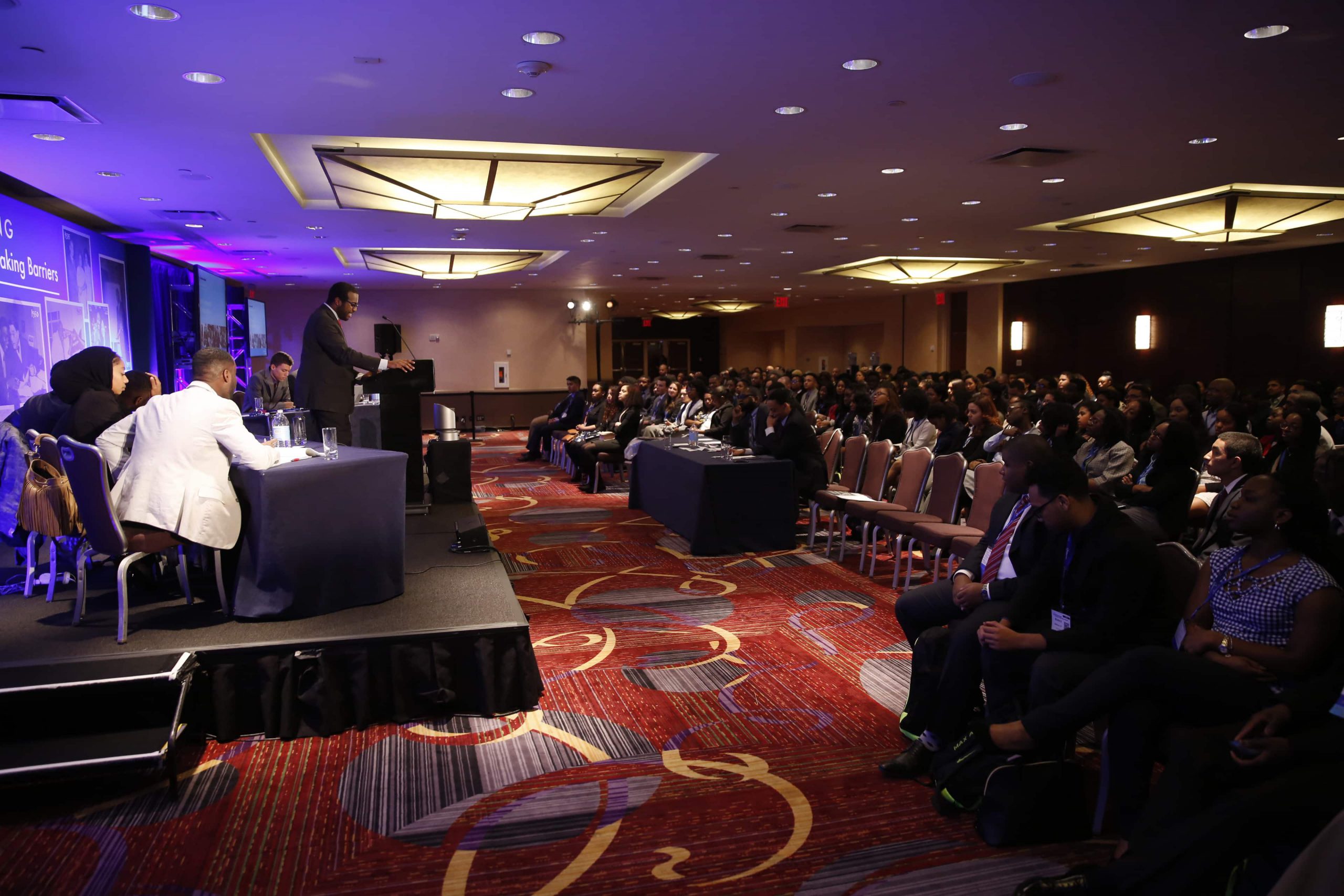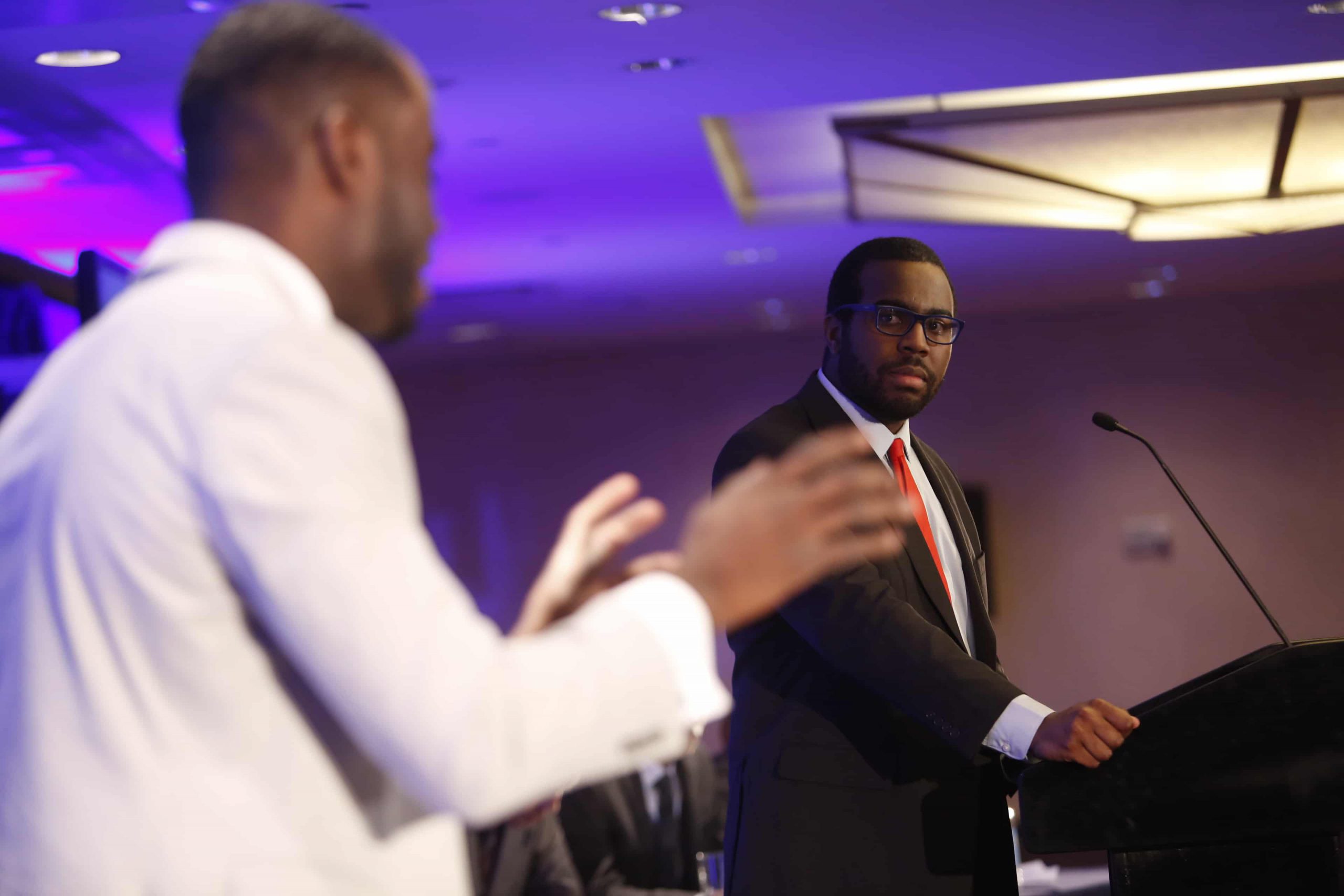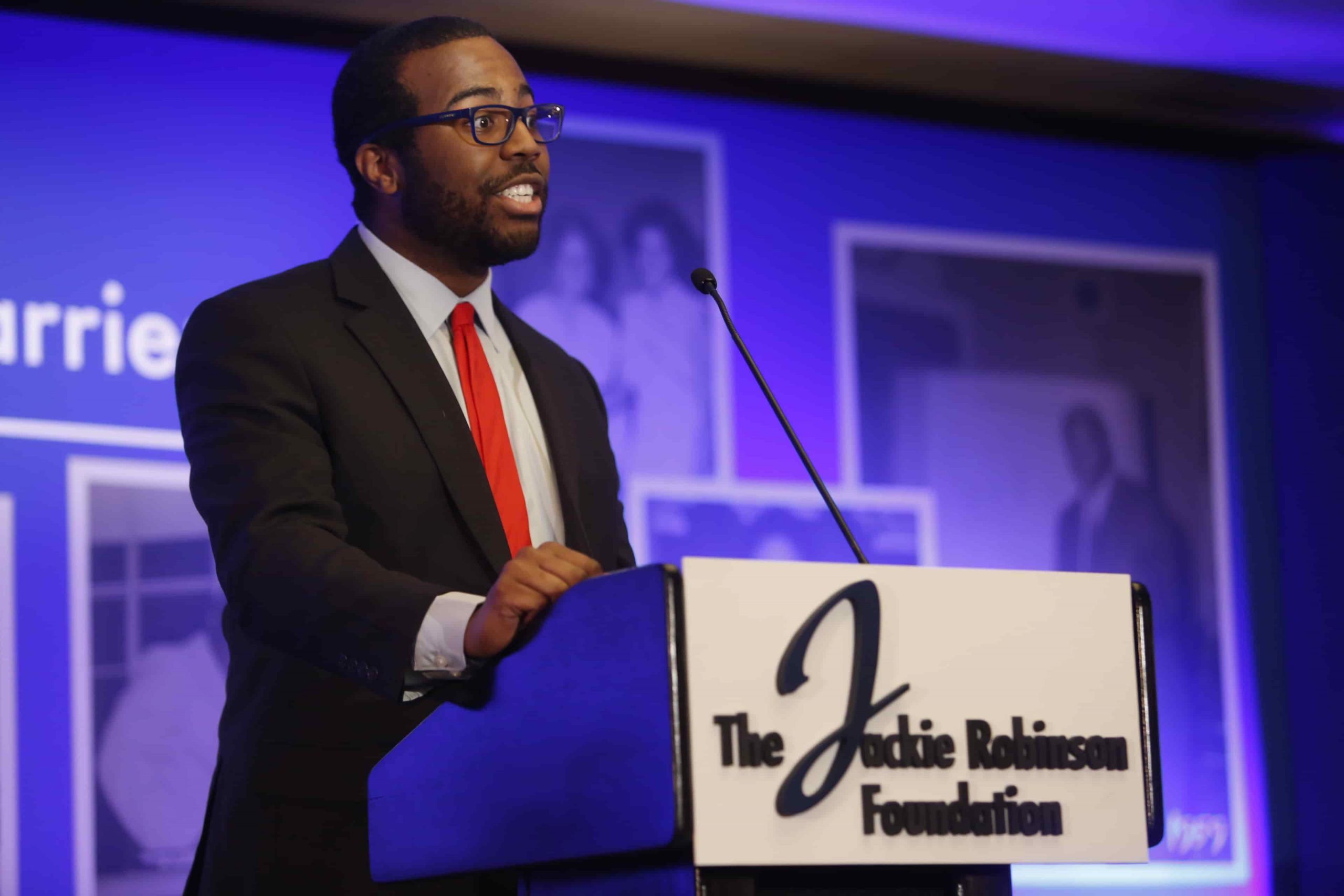Last March, JRF’s Mentoring and Leadership Conference featured the Second Annual Scholar Debate. This burgeoning tradition served as the setting for my #JRFfirst: publicly defending a political position that didn’t reflect my own beliefs.
In this debate, I argued that a just government ought not require employers to pay a living wage. Not only did this JRF experience put me out of my comfort zone; I became a better listener and a more-empathetic debater. Because these skills make me a better citizen, I am grateful to have shared this experience with my #JRFfamily.
Before the debate began, I thought I could effectively rely on my experience from the Yale Political Union (YPU). However, from the moment I learned the rules of JRF’s debate as stipulated by moderator Mr. Aubrey Semple—Program Director of the New York City Urban Debate League—I knew this debate would be different.

Depending on docket location, YPU speeches last three or four minutes and most speakers prepare remarks in advance. Outside of our traditional tapping for agreement and hissing for disagreement, no one has reason to expect interruptions during their speeches. Rather, the question and answer session after a speaker yields to the body enables prime opportunities for rebutting speakers’ claims.
The JRF Scholar Debate afforded each speaker a maximum of seven minutes—more than twice the maximum length of the shortest-possible YPU speech. Further, the JRF rules allowed for the opposition’s interruption during the middle five minutes of the speech via “points of information,” statements or questions intended to undermine a speaker’s argument. So, let’s just say that I didn’t enjoy the thought of the opposition using my speaking time to attack my argument.
For that reason, among others, some might consider my behavior at the beginning of my speech as abrasive and hostile. I declined many of the opposition’s disruptive points of information, even within those middle five minutes, because I wanted to finish my prepared remarks first and field questions later. After the first few refusals, Mr. Semple forced me to take a point of information, which caught me off guard.
Looking past that immediate embarrassment, I now thank Mr. Semple for making me recognize the point of information. Engaging with your opposition—even as you articulate your position—shows greater respect for them and strengthens your argument. As I further recall the JRF Debate, I also remember that some of the points of information resulted from genuine confusion, rather than a desire to poke holes through all of my claims. Perhaps I had confused spectators in the audience as well. After all, hundreds of scholars, alumni, and staff attended the debate. Had Mr. Semple kept letting me brazenly ignore points of information, I would have never learned that people didn’t understand the argument I spent hours preparing to make.

Every day, I encounter people who disagree with me, but I rarely take the time to think about the ways in which the strength of their conviction mirrors mine. By recalling my experience in the JRF debate, I can remember that trying to understand why someone disagrees with me might satisfy me more than a failed attempt to convince them of my viewpoint.
Written by: Jeffrey Hendricks
 Jeffrey Hendricks is a senior from Detroit, Michigan, majoring in Political Science at Yale University. Before his first paid work in politics this past summer, he taught math to middle schoolers. In his free time, he keeps up with a lot of TV shows, but more notably sports, as a devout fan of the Yale Bulldogs, Michigan State Spartans, and the Detroit Tigers, Red Wings, Lions, and Pistons. The former violinist still loves classical music, but also frequently indulges in smooth jazz and alternative pop/rock.
Jeffrey Hendricks is a senior from Detroit, Michigan, majoring in Political Science at Yale University. Before his first paid work in politics this past summer, he taught math to middle schoolers. In his free time, he keeps up with a lot of TV shows, but more notably sports, as a devout fan of the Yale Bulldogs, Michigan State Spartans, and the Detroit Tigers, Red Wings, Lions, and Pistons. The former violinist still loves classical music, but also frequently indulges in smooth jazz and alternative pop/rock.
